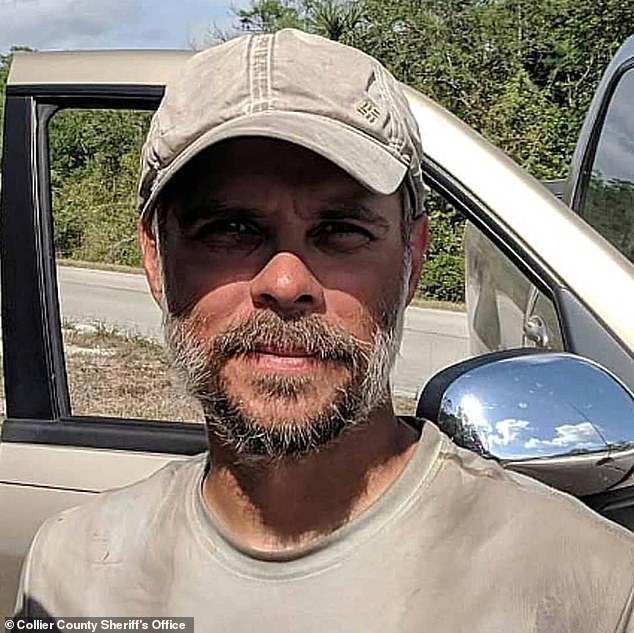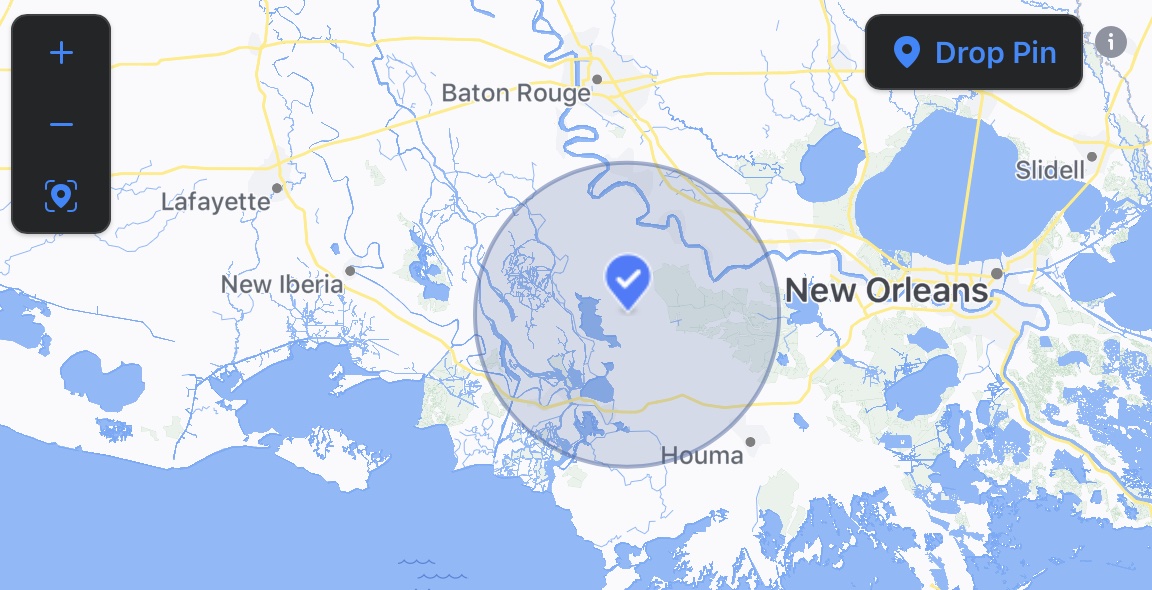Mostly Harmless
In 2017, Vance Rodriguez left for the Appalachian Trail, died on the hike, and it took the crowd to return him home. It's also the first case we ever crowdfunded.
The case of “Mostly Harmless” is fascinating in that it involves a combination of crowdfunding, internet sleuthing, and cutting-edge genomics. It was the first case funded on the DNASolves® Crowdfunding platform and it has since inspired fundraising for many new cold cases. I hope to dive deeper into DNASolves®, in future posts.
During the summer of 2018, two hikers came upon a deceased male hiker in a tent at the Big Cypress National Preserve in Collier County, Florida. Even now, his cause of death remains unclear. He was found without a driver's license, cell phone, credit cards, or other identifying information. At the time of his death, his age was estimated to be between 35 and 50 years. The hiker was described as having gray hair and a beard, blue eyes, and well-maintained teeth. His only possessions were notebooks, hiking gear, and cash. None of his possessions revealed his identity and his fingerprints did not match records in government databases. Furthermore, he had no tattoos, scars, or medical implants that could aid his identification.
This case was unusual compared to other unidentified persons cases we had worked. Several folks had actually met the hiker while he was alive and on his journey through the trails. He used multiple aliases, including his trail name “Mostly Harmless”, “Ben Bilemy”, and “Denim”. Unfortunately, no one knew his real name and his use of aliases and cash complicated later attempts at identification. In the fall of 2017, it seems he checked into Top of Georgia Hostel and Hiking Center, but the name used at check in was “Ben Bilemy”. Other hikers met him in 2017 and 2018 and even posed in pictures with him. After his death, many of these photos were circulated in hopes that someone knew him. Many recognized him, but no one knew his true name.

The Collier County Sheriff’s Office was diligent in getting the word out. They sent out flyers to solicit leads and even discussed the case on their podcast . As the second year anniversary of the hiker’s discovery approached, interest in the case grew to a fever pitch. It was around this time that I saw the case being mentioned all over social media and eventually was invited to a (now archived) Facebook group called “Unidentified male hiker Ben Bilemy 2018”. I was amazed at the effort the internet sleuth community had put into trying to piece together sparse clues to identity him.
My company, Othram , specializes in helping identify people from forensic evidence. In fact, Othram operates the only laboratory in the United States, purpose-built to apply the power of DNA sequencing to forensic evidence, particularly for use with human ID applications like Forensic Genetic Genealogy. While we work with law enforcement, its not uncommon for advocates and others to suggest cases to us. Multiple people told us about “Mostly Harmless”. Othram reached out to the Collier County Sheriff’s office and although the agency had never used techniques like ours before, they were aware of the method and they expressed interest in using it to generate leads.
In July 2020, the Collier County Sheriff’s Office started working with Othram to explore how advanced DNA testing and forensic genealogy could help identify the hiker or at least find his next-of-kin. The agency did not have a budget for this kind of DNA testing. This is fairly common as it takes time for new technology to make its way into budgets and policies and procedures. What was there to do in the meantime? A team of advocates and internet sleuths in the “Unidentified male hiker Ben Bilemy 2018” Facebook group floated the idea of crowdfunding and like that, the DNASolves® Crowdfunding platform was born. It took us just over a week to fund the project.
The law enforcement agency sent skeletal remains and Othram’s lab team went to work. Early into Fall 2020, Othram developed a DNA profile and a comprehensive biogeographical analysis of “Mostly Harmless”. I sent the following update to the Collier County Sheriff’s Office and asked for permission to share a public update:
Some who met the hiker on the trail reported that he was fluent in a dialect of French spoken in Louisiana. Based on this, some have speculated that he might have been from Louisiana. His preliminary DNA results suggest that he has connections to Cajun & Creole populations with possible ties to Assumption Parish.
It was around this time that Nick Thompson developed interest in the case. At the time, he was the Editor-in-Chief of WIRED Magazine. He wrote a story about “Mostly Harmless” in WIRED , hoping that someone would recognize him and come forward. I can’t say enough wonderful things about Nick — he is simply an amazing journalist and I recommend all of you to read his stories. In spite of the great article and broad reach of WIRED Magazine, however, no one came forward with the hiker’s identity. We were deep into genealogical research when law enforcement gave us the approval to share an update on social media. On December 9th, in between travel, I found a quiet room and jumped on Facebook Live to announce the update. After, we decided to run Facebook ads, targeting the area from which he was from. For those unfamiliar with Facebook Ads, there are amazing features for geo-targeting Facebook posts and ads:

Unbeknownst to us, Nick Thompson was also running targeted ads. Within nine days of the Facebook Live update, and before we had completed our genealogy research, someone finally recognized the hiker as Vance Rodriguez. Ultimately, it took the combined efforts of law enforcement, tips from the crowd, journalists like Nick, and Othram’s DNA testing to make the identification possible.
The Collier County Sheriff's Office enlisted the help of the Lafayette Parish County Sheriff’s Office, which made contact with Vance’s family. The family then agreed to provide a DNA sample for comparison. The Othram lab team made a positive identification based on that DNA and the Collier County Sheriff’s Office made a public announcement to share the news of the identification.

I hope the story of “Mostly Harmless” encourages folks to help solve the next cold case — either by financially supporting a case or submitting their own DNA data, in case they might be a distant relative to an unknown person. I have mentioned before in other posts that many of these cases can be solved by combining crowdfunding, volunteered data, DNA testing, and teamwork. Its a lot of work, but its always worth the effort. You can learn more about how to get involved here .
If you want to learn more about the case of Vance Rodriguez, here are some great links:
-
Nick Thompson wrote an excellent story about the case: “ A Nameless Hiker and the Case the Internet Can’t Crack ”.
-
Two months later, Nick returned with the full story after the case was solved: “ The Unsettling Truth About the ‘Mostly Harmless’ Hiker ”.
-
Othram maintains a profile on this case at DNASolves.com .